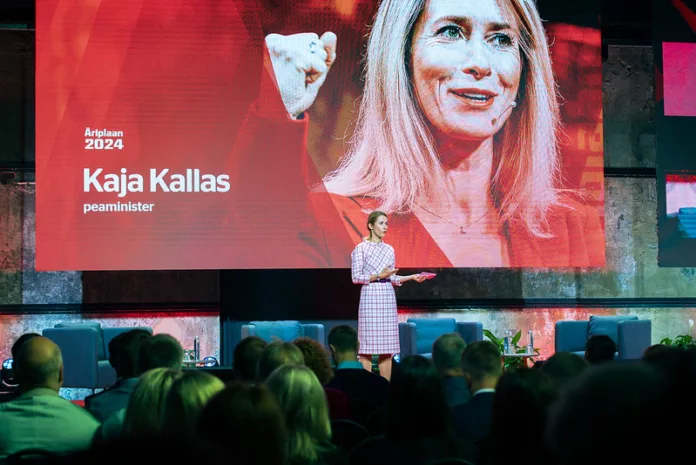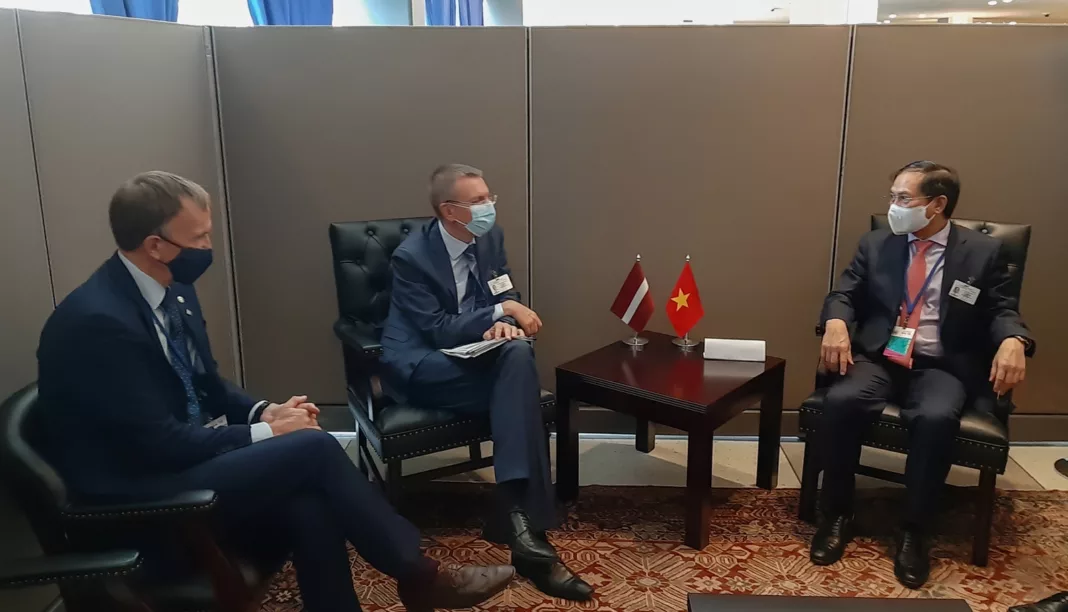Tallinn Creative Hub, 21 September 2023 – Europe strong woman and Prime Minister of Estonia, Kaya Kallas, yesterday at the annual economic conference of Äripäev, said that the current economic situation favours the implementation of structural reforms. She presented the recent state budget agreement and emphasized that well-managed public finances are very important for entrepreneurs.
In her speech, the prime minister said that while the economic situation is usually a clear boom or a clear downturn, this is not the case today. “The situation is unusually multifaceted. While the GDP, industrial production, and export growth are clearly disappointing and confidence is low, the high overall profitability of the business sector, low unemployment, and much more secure energy supplies as we enter winter this year are all very positive signs. In such a situation, it is easy to over-generalise or to paint too gloomy or too rosy a picture. The truth is somewhere in between,” said Kallas. She acknowledged the Estonian entrepreneurs who have created tens of thousands of new jobs over the past year.
According to Kallas, Estonia has now overcome both the inflation and energy crises. “In addition to the sharp decline in energy prices and improved energy availability, I believe that the steps taken so far to reorganise public finances also helped to reduce inflationary pressures,” the prime minister said. “Well-managed finances mean a high national rating, which means lower interest rates for entrepreneurs, low inflation, foreign investments, as well as the ability to plan business activities for the long term. The current tough decisions are not popular, but we are paying the price for the popular decisions of the past,” she stressed.
The prime minister called on businesses to think about what could be a new source of revenue for the country to help find the missing money to ensure comprehensive security. “We have to come up with a solution by the end of June,” Kallas added.
Speaking about the economic difficulties, Kallas highlighted the continuing economic downturn in Northern Europe, especially in the real estate and construction sectors. These constitute an important market for Estonian companies, whose ties with Sweden and Finland are much closer than those of our Baltic neighbours. The security crisis also continues – it has led to the severing of trade ties with Russia, which launched aggression against Ukraine. “Russia is always testing how far they can go, which is why we have increased our defence spending to 3% of the GDP. We are better protected today than ever before and this is the most important pillar of Estonia’s business environment,” said Kallas.
The prime minister urged businesses to carry out structural reforms and ensure that innovation moves from the lab to production faster. The decisions of the government not to cut costs on higher education, to value research and development, to boost green reforms, and to lower the tax burden on the workforce should contribute to this.
 Donate
Donate



